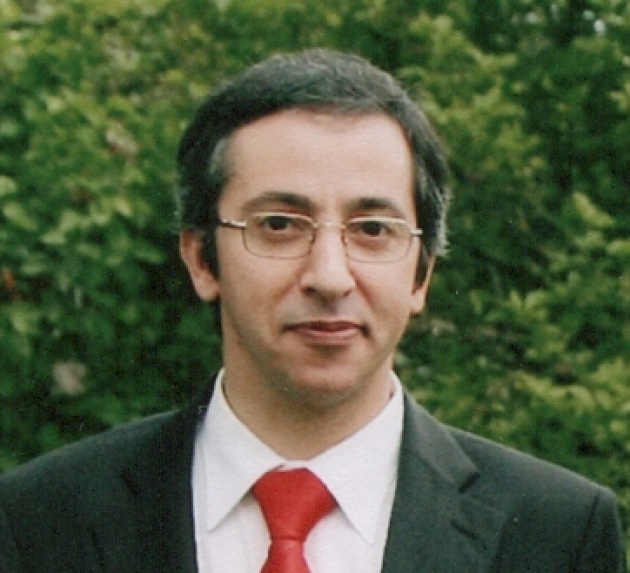
As part of our interview series with Digital Media thought leaders, we talked to Henrique Jorge, the CEO and Founder of Eter9, an active community of interests based on the concept of artificial life in cyberspace, and a new way of social networking. Jorge answered our questions about Film Annex's initiatives in Afghanistan, and shared his thoughts about education, digital and social media, and the future of Afghanistan. Film Annex is currently building Internet classrooms in Afghanistan with the mission to improve the Afghan education system and the economy of Afghanistan. We opened our second classroom last week, and are planning the construction of a third one.
Film Annex: What do you think of Film Annex's initiatives in Afghanistan?
Henrique Jorge: I think the initiatives are excellent and praiseworthy, because they’re contributing to the introduction of individuals to a new citizenship, making them able to effectively take part in the social and political life, taking on various tasks and responsibilities. Today's citizen should know how to communicate on many different levels, how to engage in dialogue in an interactive and interdependent world, imbued with the tools of their culture, and using them for their emancipation, transformation, liberation and transcendence. Therefore, this mission undertaken by Film Annex is managing, through education, to develop essential skills in order to empower individuals to take charge of their lives, enabling a more direct, effective and responsible participation in society. Film Annex is providing education so that these students become integral members of a modern culture, capable of integrating a production system by making use of their intellectual and experiential knowledge and producing in harmony with their natural and social environment. I also think that they are being taught how to be conscientious consumers, able to take possession of the information produced in the world and which affects their lives.
FA: Digital and social media have changed the political scenarios of several countries in the last two years. Can they also affect the educational and financial landscape? If yes, how so?
HJ: We live in an age which is considered a trilogy that includes information, communication and competence. Schools carry the expectation of fulfilling a crucial role in the lives of all children and young people, providing them with educational experiences that allow them to participate in society in an active, informed and autonomous way. The skills acquired during school education should be sufficient to effectively respond to the demands of the current age, as well as making people able to pursue a training path in the future meant to acquire new skills which are appropriate for the performance and effectiveness demands that life may present to each person in each stage of their lives. New technologies are an expression of cultural change in our contemporary society, and when viewed as such, they can enable its users’ development. Therefore, when it comes to this issue, I think that digital and social media contribute to a vast educational and financial change in the following way: many official documents acknowledge that the information society can contribute to the improvement of its citizens’ well-being, by facilitating a more open State, innovation in education and vocational training, access to knowledge, the development of new economic activities and increasing job availability with higher skill levels, among other positive contributions.
FA: Is digital media the most efficient source that can educate the Afghan youth?
HJ: If not the most efficient source, I think it surely is one of the most efficient. In this era of constant changes, educational institutions are challenged not only to keep up with the world, but also to become more computerized (in the sense of acquiring technological equipment and making it available to faculty and students), but above all, they are challenged to acquire theoretical and methodological knowledge which allows them to apply information and communication technologies in order to promote a reconfiguration of educational practices and the teaching and learning process. Communication, technologies and education form a triangle which is essential for the formation of the 21st century human being. Therefore, I think that digital media will be productive and effective in educating young Afghan people.
FA: Can digital media and advertising sustain financially upcoming countries like Afghanistan and their educational system?
HJ: We are in the midst of a new era, the era of technologies. Digital media, together with the most modern and interactive multimedia technologies, is assuming an increasingly important role in the development of societies. The speed at which these changes are being made is reflected on the context pertaining to any discussion on the future objectives of education and training. Developing countries (and consequently, the new societies and economic structures) should be increasingly more enlightened by information and knowledge. Digital technology is, at the moment, of great importance for the development of societies and for the advancement of regions, countries and the world. Investing in digital technology is essential for the qualification of all relevant players. Digital technology can contribute largely to the economic sustainability of developing countries such as Afghanistan, especially through education, since it will be able to stimulate the students and make them go beyond the content covered in class, leading them to actively participate in the teaching and learning process by researching, questioning and recounting their experiences. As far as advertising contributing to the financial sustainability of countries like Afghanistan, the issue is very simple. Advertising is the engine of the economy and is integrated in a vicious circle, because it contributes to the increase of consumption, which in turn contributes to the proliferation of advertising, thus leading to the development of a country’s economy, be it a developing country or not. So, undoubtedly, I think that advertising has the ability to participate in the economic sustainability of an emerging country, and it also has the power to influence its educational system.
FA: How can digital media serve the emancipation of women and provide them with an independent education, connectivity, and financial freedom?
HJ: As mentioned in the previous answer, digital media become essential for the evolution of societies and therefore, can assist and promote the emancipation of women by providing independent education, connectivity and financial freedom, seeing as digital media are already part of the future (they can even be considered the future) and they are a marker for progress. The world is characterized by rapid change, increasing globalization and great complexity in terms of economic, social and cultural relations, and digital media help in bringing people together, making them able to communicate and engage in dialogue in an interactive and interdependent world using the tools provided by culture. They provide guidance to the individual, making them a member of a modern, planetary culture which is, at the same time, a close, community-based culture. This requires technical preparation for long-distance communication; it also requires the development of a sense of brotherhood, solidarity and understanding that our evolution is individual and collective at the same time. For all these reasons, digital media will be able to make women understand that they are part of a whole, a microcosm within a macrocosm, a part of a community, society, nation and planet, and that’s why it’s important to provide them with independent education and connectivity. By browsing the Internet and taking part in the local or global network, as a member of an information and global knowledge system, women may experience and better understand those dimensions and find their financial freedom.
FA: What is your opinion on investing in the education of the Afghan youth and women by building schools in Afghanistan?
HJ: I think this work is essential because schools will be able to educate young people based on a process of exchange and dialogue, promoting the development of knowledge. In addition to typical school subjects, it is essential to build citizenship and deepen the knowledge related to participation and cooperation. For this reason, schools should provide a joint learning, rich in values and ethics, with the objective of educating concerned, participative and committed citizens. Educating the population is a competitive advantage for nations which seek internal and external development. The ability to generate, process and transmit information is the first step of a production chain that is complete with its application in the process of adding value to products and services. The sooner children and young people are able to be surprised, the more valuable they will become in the future. The investment in female education also becomes extremely important, because women are or will be mothers, and a big part of the children’s education will be their responsibility, along with schools. For these reasons, I believe that this initiative is very positive, as it will enhance the country’s development by relying primarily on the education of young people and women, who are the basis for the future.
FA: Our goal is to increase the average yearly income in Afghanistan from $900 to $8000. How long do you think this will take?
HJ: This is a very ambitious goal and I surely hope you are successful in achieving it. Education is certainly one of the things than can contribute to raising job skills and finding well-remunerated work, although it will probably take many years to achieve such an increase in a country like Afghanistan, which struggles with so much political and social turmoil.
FA: Veterans have a prominent role in the Film Annex initiatives in Afghanistan. What is your opinion on (G.I.V.E.) - Global Initiative for Veteran Entrepreneurship and building veteran business opportunities?
HJ: I think it’s a great initiative, showing a high sense of social responsibility, since it gets rid of barriers and obstacles by making it possible for veterans to achieve autonomy. By improving writing skills, communication skills, general business skills, etc., G.I.V.E. is on the right track to promote and enhance the physical, psychological, economic and social well-being of veterans. Such actions should be encouraged because they foster the social and economic reintegration of veterans by enabling a return to an active work life, developing the veterans’ skills and know-how, and enhancing opportunities for entering the business world. In the global information society we live in, G.I.V.E. offers these citizens an opportunity for education/training within the needs of their new reality, while also respecting their interests and increasing their chances of integration into the labor market. Thus, G.I.V.E. transfers to the veterans the challenge of acquiring the skills they need to transform this new knowledge and information into a strategic economic resource, so that they can have work and lead an active life, and feel like they are an integral part of society.
More about Henrique Jorge: Jorge is also the founder and CEO of AUTO.NET, a web design and consulting company, providing Internet related services to the global market since 1995.



